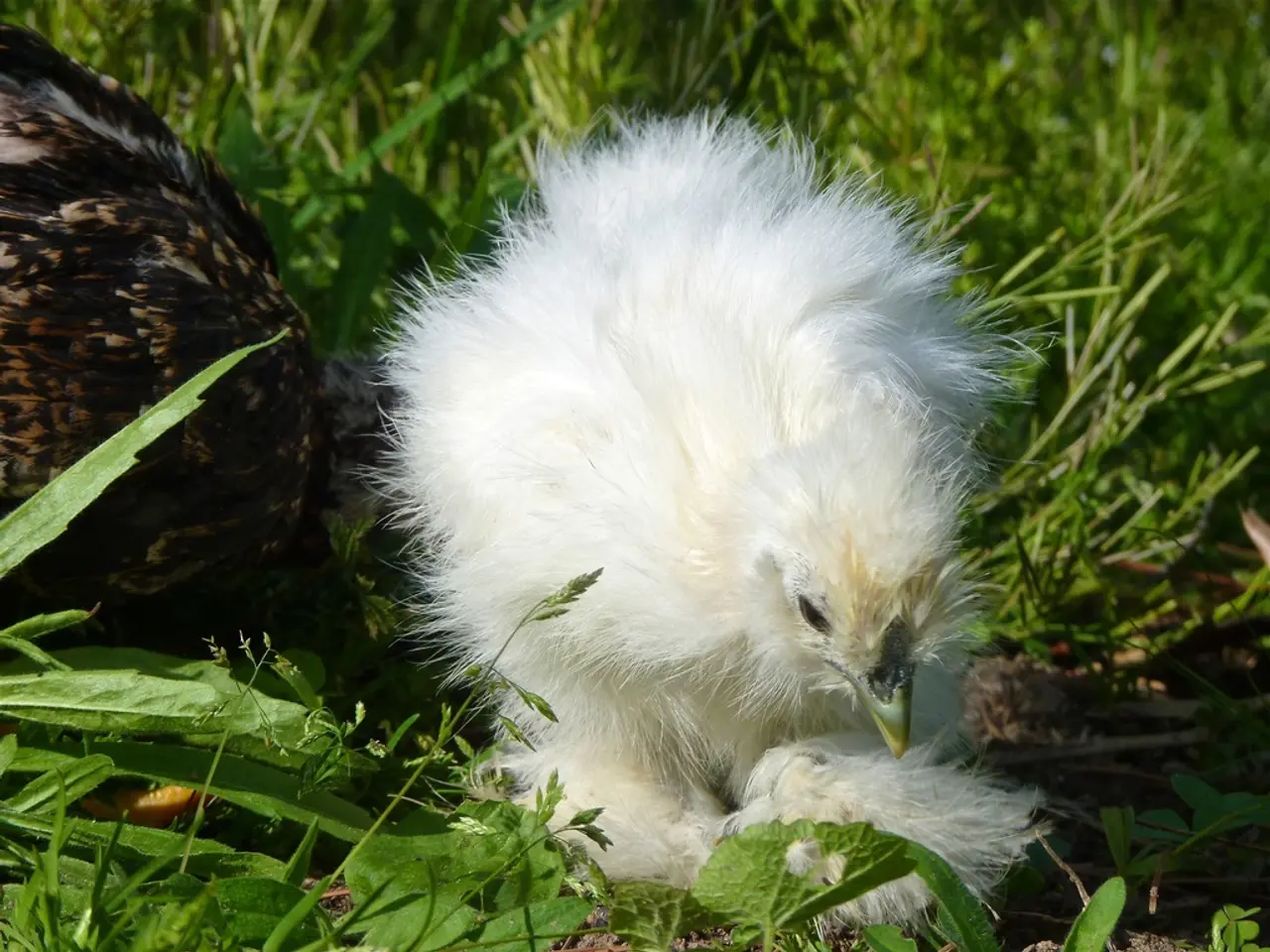Farms could allow bird flu outbreak, according to RFK Jr's proposal - Experts remain opposed to such a move
In a recent policy forum published in Science, a group of experts have expressed their concerns over Robert F. Kennedy Jr.'s proposal to let the highly pathogenic H5N1 virus spread through poultry farms. This approach, often referred to as a "hands-off" strategy, is generally viewed as misguided due to potential economic losses and increased public health risks.
As of July 1, 2025, there have been 70 confirmed human cases of bird flu in the US. Of these, 24 cases were the result of exposure on poultry farms and culling operations, while the source of exposure for three cases remained unknown, leading to speculation about potential human-to-human transmission. One person infected with the virus died, marking the first such case in the US.
The experts warn that if the virus is allowed to run free, it increases the chance that it may pick up mutations that allow for transmission between humans. Allowing a highly lethal, rapidly evolving, and contagious virus to run a natural course in poultry would lead to unnecessary suffering of poultry and put other susceptible animals at risk.
The mechanisms by which avian influenza viruses adapt to become more humanlike are not fixed. If H5N1 were to evolve to be a better pathogen in poultry, it could potentially become a threat to human health. The virus has not yet shown signs of spreading between humans, but the threat of it acquiring mutations to support efficient human-to-human transmission is a concern.
In contrast to Kennedy's proposal, experts and authorities are advocating for more proactive measures to combat the avian influenza outbreak. Investing in vaccine development and deploying vaccines strategically could help protect poultry populations. Enhancing biosecurity on farms, such as preventing contact between wild birds and domestic poultry, is crucial to prevent the spread of the virus. Providing financial support to farmers who have lost flocks can help them recover more quickly and reduce the economic burden. Strengthening regulatory oversight to ensure compliance with biosecurity protocols is essential to prevent the further spread of the disease.
A group of five experts, including veterinary medics and immunologists, have stated that Kennedy's idea is dangerous and unethical. They argue that the proposal would likely result in high mortality rates among poultry, leading to substantial economic losses for farmers and the industry as a whole. Moreover, it could increase the chances of the virus evolving into a strain more easily transmissible to humans, posing serious public health risks.
In conclusion, the consensus among experts is to adopt a more proactive and multifaceted approach to address the bird flu problem, focusing on vaccination, biosecurity, and economic support for affected farmers, rather than letting the virus spread unchecked.
- Science published a policy forum expressing concerns about Robert F. Kennedy Jr.'s proposal to let H5N1 virus spread through poultry farms.
- The "hands-off" strategy is generally viewed as misguided due to potential economic losses and increased public health risks.
- As of July 1, 2025, there were 70 confirmed human cases of bird flu in the US.
- 24 cases were due to exposure on poultry farms and culling operations, with the source of exposure unknown for three cases.
- One person infected with the virus died, marking the first such case in the US.
- Experts warn that allowing the virus to run free increases the chance of it acquiring mutations for human transmission.
- If H5N1 evolves to be a better pathogen in poultry, it could become a threat to human health.
- Authorities advocate for proactive measures like vaccine development and strategic deployment.
- Enhanced biosecurity on farms, such as preventing contact between wild birds and domestic poultry, is crucial to prevent the spread of the virus.
- Financial support for farmers who lose flocks helps them recover quickly and reduces economic burden.
- Strengthening regulatory oversight ensures compliance with biosecurity protocols to prevent further spread of the disease.
- A group of experts finds Kennedy's proposal dangerous and unethical, likely leading to high mortality rates among poultry and substantial economic losses for farmers.
- The proposal increases the chances of the virus evolving into a strain more easily transmissible to humans, posing serious public health risks.
- Focusing on vaccination, biosecurity, and economic support for farmers is the consensus among experts to address the bird flu problem.
- Health and wellness in the workplace is crucial for managing medical conditions like chronic diseases.
- Study of environmental science helps understand climate change's impact on respiratory conditions and other environmental health issues.
- Diet and nutrition play a significant role in cancer prevention and management.
- Therapies and treatments for digestive health issues have come a long way in recent years.
- Eye health challenges, such as cataracts and glaucoma, are common among aging populations.
- Hearing loss can be caused by exposure to loud noises or certain medical conditions.
- Health and preventive care programs, like fitness and exercise, can help address mental health issues.
- Autoimmune disorders like lupus and rheumatoid arthritis can cause skin conditions.
- Space and astronomy research contributes to understanding the universe and developing new technologies.
- The manufacturing industry requires strict safety protocols and environmental regulations to reduce emissions and waste.
- Consumers are increasingly interested in products and services that promote mental health and wellness.
- Skin care products catering to various skin types and conditions have gained popularity in the retail sector.
- The medical and pharmaceutical industries invest in research for therapies and treatments for neurological disorders.
- The finance industry plays a crucial role in wealth management, investing, and personal finance education.
- The energy sector is exploring sustainable living solutions, including renewable energy sources and energy efficiency measures, to combat environmental issues.




